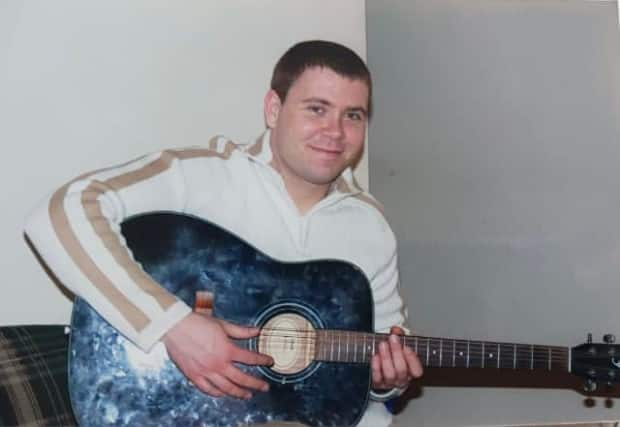Family of man in crisis shot dead by Toronto police says he 'didn't have to die'

Horst Geisler never imagined he'd one day bury his only son.
But on Sunday, that's exactly what the 70-year-old and family members are gathering to do after Andrew Geisler died after being shot by a Toronto police officer earlier this month.
"It's been rough for the last two weeks and it's really hard on our family," said Geisler. "We're trying to wrap our heads around why this is happening."
The shooting happened in a parking lot in the city's east end near Danforth and Victoria Park avenues shortly after noon on May 10.
The SIU, which investigates cases of serious injury, death and allegations of sexual assault involving police, has said someone flagged down a police officer after encountering a man in distress. An off-duty paramedic told CBC News it was he who alerted police after seeing a man in "a clear state of mental health crisis."
That paramedic, Johnathan Stavrou, said the man was holding a knife, which he described as a switchblade, prompting Stavrou to alert an officer nearby.
The SIU, who hasn't publicly identified Andrew, says a 40-year-old man was shot following an "interaction" with a Toronto police officer.
He was transported to hospital, where he was later pronounced dead. Police have said they can't comment on the situation while the SIU investigation is underway.
Since Andrew's death, his family has been stuck in a holding pattern waiting for answers. Geisler says he was told by the SIU that a probe into his death could take up to four months to complete.
Remembered as 'gentle'
For now, they're remembering Andrew as a "gentle" and "good" man.
"He just was the kind of guy you just felt comfortable and at ease being around," said Lesley Geisler, Andrew's sister.
The siblings shared a tight-knit group of friends and were close themselves, Lesley says, having been born in the small town of Bowmanville and later moving to Toronto.

Andrew had a great sense of humour, she continued, despite being a "very quiet and shy" guy. He was calm and easygoing and known for being able to play any tune on the guitar after he learned how to play it himself.
"He kind of made light of every situation, you know, even though he was going through some struggles," said Lesley.
She says Andrew battled depression and anxiety, especially in the last few years of his life. Geisler says Andrew particularly struggled with alcoholism — an on-and-off battle that he seemed to suffer in silence.
"He needed help. He needed someone to get him to a hospital and that's where he's supposed to be," said Geisler.
Amid his struggles, Andrew would disappear for days at a time. But leading up to his death, his sister says, he was keen to recover.
Dreams of getting back into workforce
"He said he was having dreams of, you know, getting back into the workforce and really kind of getting back on his feet," she said, adding Andrew had been a steel worker in Toronto.
"He had a lot of love and support behind him from my family, from friends, but you know, it was just a bad string of events."

Geisler says Andrew was on a long wait list at The Centre for Addiction and Mental Health, following a previous stint of rehab.
He never imagined his son would die this way.
"My boy didn't have to die that day. He should never have [had] to die because he wasn't well," said Geisler.
Geisler says his son's death should be part of a broader conversation around the police's response to mental health and distress calls.
That issue was thrust into the spotlight after the deaths of Ejaz Choudry, D'Andre Campbell, Regis Korchinski-Paquet and others during interactions with police in the last few years, which sparked calls for change and a decrease in funding for police services across the Greater Toronto Area.
"It has happened to others," said Geisler of police-involved deaths.
"It has happened to a lot of people and the system has let them down."


